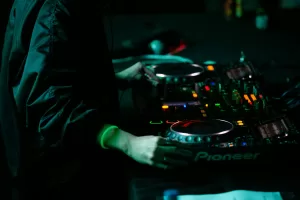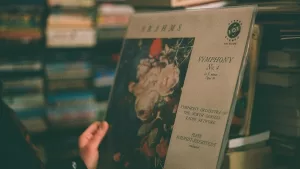Patents and Inventions in the Music Industry
By Rahul Jairaj

The music industry is an ever-evolving landscape driven by creativity, innovation, and technology. Artists strive for new ways to showcase their art while building audiences, and patents and inventions become transformative tools innovators use to shape sound quality and music experience. Today, we will examine powerful elements that influence the music world by researching current and real-life case studies showing the effect of innovation. So, don your headphones as we dive deep into this fascinating yet inspiring topic!
Understanding Patents in Music

Patents provide inventors with legal protection that gives them exclusive rights over their invention for an agreed-upon timeframe. In the music industry, patenting processes might be complex but worth understanding for many applications spanning instruments, recording technologies, and sound engineering processes.
Utility Patents protect novel inventions or functional advancements that improve digital music playback quality. An example is the groundbreaking technology George Beauchamp and Adolph Rickenbacker developed to patent their first electric guitar model in 1937— revolutionised the music industry! Design Patents cover ornamental features of functional items like uniquely styled guitar models.
Plant Patents: While not specifically related to music, plant patents still play an influential role within the industry—particularly for artists influenced by nature or using natural elements as inspiration or elements themselves. Knowing about all these different patent types helps musicians and inventors protect their ideas and foster further creativity.
Current Patent and Invention Trends in the Music Industry
Over recent years, music has witnessed several exciting patent and invention trends that continue to shape how we create, distribute, and experience music. Technology’s role is critical in driving innovation within this space – revolutions constantly change how music is made, distributed, and experienced by its consumers.
Digital Music Technology
Since streaming services like Spotify and Apple Music emerged, digital music technology has revolutionised how we consume songs. Some companies have even developed algorithms to optimize user experiences by personalizing playlists based on listening habits or discovering new tunes through personalized recommendations.
One example is Spotify’s “Discover Weekly” feature, which utilizes proprietary algorithms to analyse user behaviours and curate tailored playlists. This has revolutionized music discovery for millions of users!
Music Production Innovations
Technology has revolutionized the process of music creation. New software and tools have emerged, making music production more accessible.
Case Study: Ableton Live, used by many musicians and producers alike, developed its groundbreaking session view software to allow artists to improvise live while editing in real-time. This invention revolutionized live performances by enabling looping, mixing, and creating on the fly—changing live performances dramatically!
Artificial Intelligence in Music Artificial intelligence has increasingly entered the realm of music composition, analysis, and marketing. Numerous companies are developing AI-powered tools that assist artists when writing or composing new tracks and monitoring trends.
OpenAI MuseNet, for instance, is an intelligent deep neural network capable of creating unique compositions by analysing existing music – thus blurring the line between human and machine-assisted creativity.
https://neurohive.io/en/news/openai-s-musenet-ai-can-generate-novel-4-minute-compositions/
Why Patents Matter in Protecting Creativity
Patents play an invaluable role in protecting creativity within the music industry. They are essential to ensuring that artists and inventors receive recognition and financial benefits for their works. Furthermore, this safety net gives creators confidence that unforeseen third parties will not steal their ideas.
Encouraged Innovation When inventors know their ideas are protected, they’re more likely to invest time and resources into designing innovative new products. This encourages creativity while moving the music industry forward.
Personal Research: based on interview research given by the musicians, they quote ample opportunities to experiment with sound and technique, knowing they could patent a unique instrument or method gives them the confidence to experiment without worrying that competitors might steal their ideas.
Patents ensure creators receive fair compensation for their inventions or original works, protecting them from unwarranted copying and use in an industry like music where piracy can severely reduce earnings. As music industry supporters, we must recognize and appreciate all the creative effort that goes into producing our favourite tracks or albums we listen to on repeat.
Case Study: “Blurred Lines” One of the most influential lawsuits relating to copyright and patent issues in music history, “Blurred Lines” is widely known. Marvin Gaye’s family sued Robin Thicke and Pharrell Williams after hearing that their song closely resembled Gaye’s hit “Got to Give It Up,” with the court granting their family compensation as they claimed their music resembled it too closely, an outcome favourable for Gaye led to significant payout.
This case illustrates the value of protecting original work, reminding artists to be wary about any influences upon them, and respecting what others have created.
As technology develops and artistic expression becomes more accessible to accomplish, patents will continue to play an essential part in music innovation. Their importance will only increase with each passing day.
https://ew.com/music/2018/12/13/blurred-lines-copyright-lawsuit-robin-thicke-pharrell-williams-pay/
Emerging Technologies
From virtual reality concerts to immersive sound experiences, the music landscape will change further soon. Patents will play an essential part in safeguarding innovative ideas that shape the future of music – imagine patenting something such as an interactive performance system allowing artists to ‘perform’ simultaneously across multiple locations or an artificial intelligence-controlled music composition tool; such innovations would all need protection over time.
Imagine attending a concert where each audience member received their own personalized experience using augmented reality! Patenting such technology ensures its creators get credit and profits.
Promote Collaboration
General collaborations have become more frequent over time, and patents allow artists to share technologies and ideas while protecting them and encouraging creativity and innovation across musical genres. Patents provide artists with a tool for protecting themselves while contributing to a collaborative spirit that enhances creativity and innovation across musical genres.
Collaboration fosters creativity. Patents help protect this innovation.
Patents and inventions play pivotal roles in the music industry, from inspiring creative minds to protecting innovations. Through various examples and case studies, we’ve seen how patents help progress while guaranteeing artists receive recognition and fair compensation. As technology develops further, innovation within music will only increase. So, whether you are an emerging artist, seasoned professional, music lover, or just curious listener, keep an ear open for what may come next! It could be anything – new sounds or inventions from which future musicians may draw inspiration! Whatever it might be. don’t miss it because you might miss something fascinating!